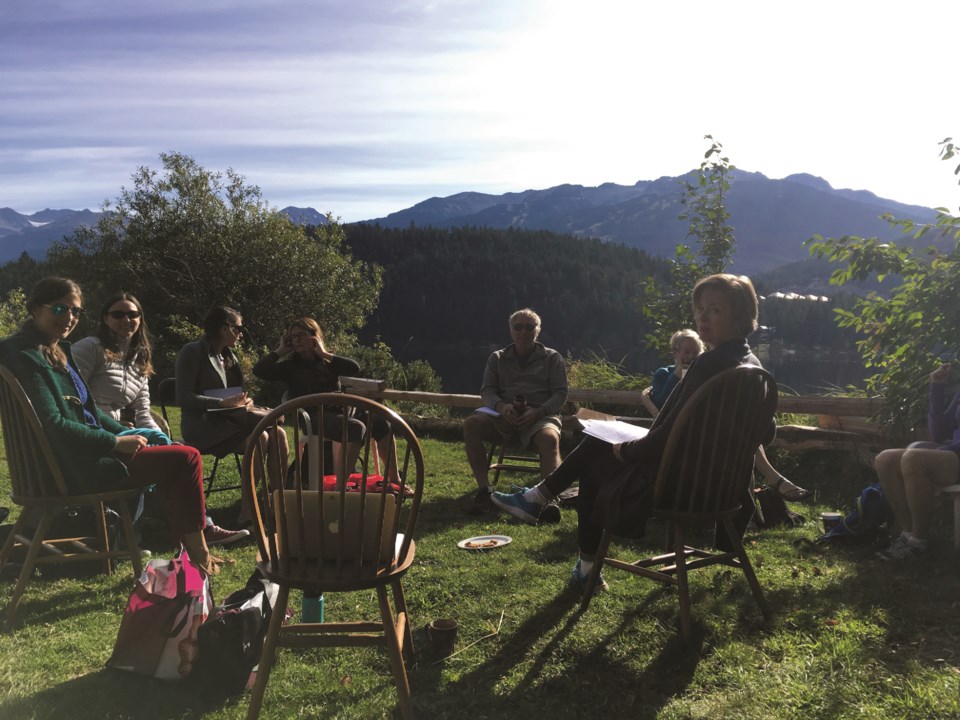When the Whistler Community Foundation (WCF) board and grant committee sat down to plan how to deliver the organization’s spring 2021 grants, they realized they had an opportunity.
“With everything that happened in the last year, with the need for racial equality, we started to look at ourselves and the foundation, community, and granting,” said executive director Claire Mozes. “What’s one small step we could take to [forward] racial equality?”
As a result, the WCF’s callout included a new request: Would applicants consider putting forward any projects working towards anti-racism?
“We were hoping to start the conversation and be part of the conversation,” Mozes said. “We don’t have it all figured out and we’re doing lots of learning ourselves, but if there was one small step we could take, we thought this was a good starting point.”
One outcome was the Whistler Writing Society’s scholarship for an emerging writer who is Black, Indigenous, or a person of colour.
While the scholarship wasn’t new, it had been put on hold for 2020 during the revamped, online festival, said Rebecca Wood Barrett, manager of the Whistler Writers Festival.
“We didn’t run it last year because we didn’t run the writer-in-residence program, but it seemed like a good fit to apply for the grant,” Wood Barrett said. “We are hoping to run the writer-in-residence program this year—we’re keeping our fingers crossed that the health orders will allow us to have small gatherings.”
The funding (which came in at $350) will allow a burgeoning writer of colour to either participate in the aforementioned program or—if they don’t yet have the requisite partially developed piece of writing ready—attend the festival for one-on-one writing consultations.
“I think in the last year it’s become obvious that we need to do more work towards anti-racism and anti-colonialism—our own learning and the work we need to do towards learning to make conscious choices—and actually take action,” Wood Barrett said. “This scholarship fits well into that.”
Last year, WCF put its callout for grants in January and voted on recipients in March. Given the timing, it resulted in plenty of back-and-forth as the recipients adjusted the programs for which they received funding.
“There’s a lot of strength and trust in our relationship with recipients,” Mozes said. “We knew if they needed to move something online, they could do it and go forward with it … The needs changed for some of these organizations; what was pressing in January changed greatly by the time summer rolled around.”
To that end, organizations applied for grants with a little less uncertainty this year. In fact, some of the lessons and trials from 2020 have served them well. The Whistler Writing Society, for example, received funding for its Authors in the Schools program.
Last year, it moved online and was accessible to students across the province, but this year they anticipate, potentially, a hybrid approach.
“We hope that if we do an in-person presentation, we’ll also be able to broadcast that as well,” Wood Barrett said. “We got great feedback, especially from teachers that were working with kids who were at home. [They] were looking for different content and outreach. That was great. It also meant community members could tune in as well.”
For 2021, the WCF doled out grants under three pillars: Caring Community, Learning and Environment with grants that were in keeping with the sustainable development goals outlined by the United Nations—in particular the goal to “promote peaceful and inclusive societies for sustainable development, provide access to justice for all and build effective, accountable, and inclusive institutions at all levels.”
In total, they handed out $180,000 in grants. Perhaps not surprisingly, there were many applications—and grants given—for mental health support.
Pathways Serious Mental Illness Society, Family 2 Family Education Workshops received $1,500, Crisis Intervention and Suicide Prevention Centre of British Columbia, Whistler Suicide Prevention Training Program was granted $3,000, and Whistler Community Service Society outreach services was given $2,000, to name a few.
As always, there was also a strong emphasis on the environment. “The environmental legacy fund is the largest fund,” Mozes said. “We do $125,000 in granting each year. It has its own granting.”
The largest grants in that category were $19,000 to the Sea to Sky Invasive Species Council for invasive species inventory, control, and monitoring as well as $18,000 for education and outreach training programs.
The Association of Whistler Area Residents for the Environment (AWARE) also received $15,000 for its climate action and awareness project, $4,000 for its value of old forest education project, $25,500 for 2021 capacity support and advocacy, and $8,500 for its global observation research initiative in alpine environments.
Check out the full list of recipients here.





